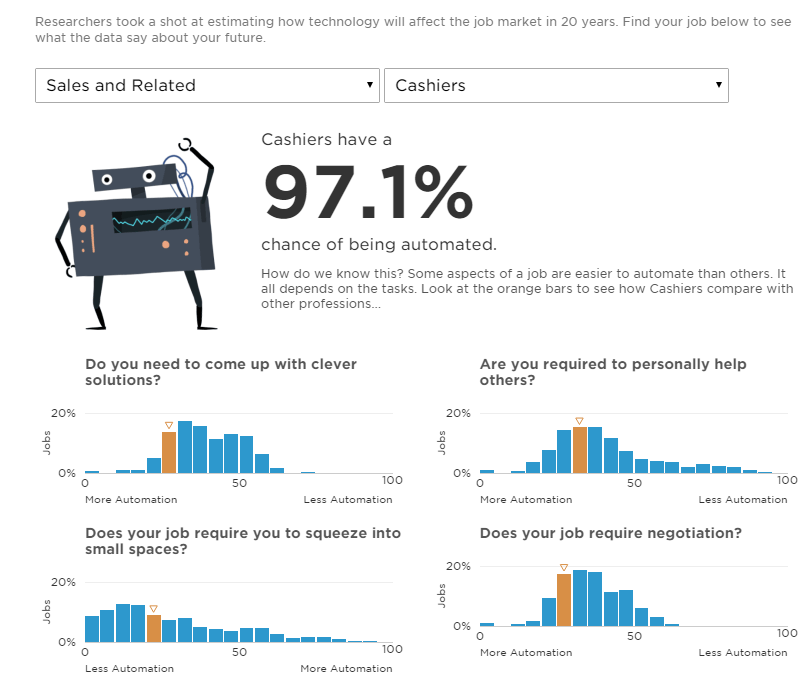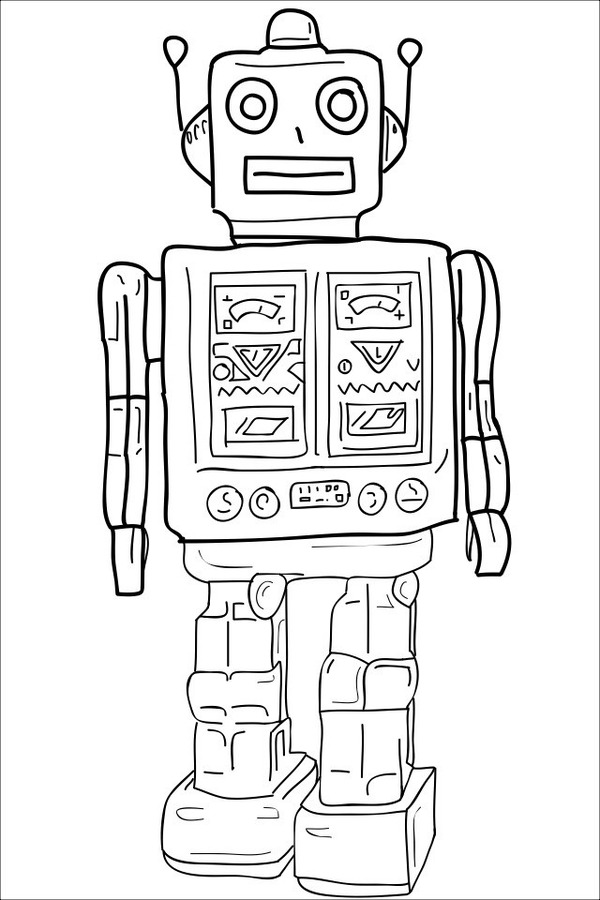Note: The blog is taking some well-deserved rest for the next few days (that is code for I am pretty much out of decent ideas, and I doubt most folks are spending their holidays reading blogs anyway), and will be re-running some of best, or at least most interesting posts from 2014. Maybe you missed these the first time around or maybe you didn't really miss them, but either way they are presented for your consideration. Thanks to everyone who stopped by in 2014!
The below post first ran back in January and is a good example of a theme I seemed to keep coming back to throughout the year, actually for the last few years - the workforce impact of more powerful and sophisticated automation technologies like Baxter the Robot .
Have a great weekend!
----------------------------------------------------------------------------------
I don't see him like a robot. I see him like a person.
A couple of years ago when I know I was one of the few folks in the space regularly writing about robots at work and the potential impacts that were going to be realized from these developments, I used to get a boatload of Google search traffic simply from keyword searches on the word 'robot'. These days, I see much less of that kind of search directed traffic, even though I am probably writing even more frequently about the topic.
But lately it seems like everyone in the HR/work/workplace blogosphere is talking, writing, and speculating about robots and the increasing automation of all kinds of work. While I do think that this increase and almost mainstreaming of attention on the topic is really quite needed, I also think that at some level we might be already getting a little tired of the topic, and are even beginning to tune out these messages.
So rather than run the latest piece about the newest advancement or application of robot or otherwise machine intelligence to a new form of work and issue off another warning about how you or your kids need to take this all very seriously as one day the robots will take all our jobs and leave us, well, trying to figure out what to do with ourselves, I decided to share a simple, short video about a specific application of new robot technology in the workplace, and let you decide what it might mean.
Embedded below, (email and RSS subscribers will need to click through), is a recent video from Rethink Robotics, the makers of the pretty amazing industrial robot known as Baxter. Baxter, you might have heard, represents an improvement to traditional stationary and bespoke, single-use manufacturing robots of the past. Baxter is flexible, can be easily programmed, and can work in very close proximity to people.
Check the video and pay particular attention to the comments of one of the plastics plant supervisors, a Ms. Martinez about what it is like working with (and supervising as it were) Baxter:
Really interesting, for a couple of reasons I think. Certainly the big, easy to remember line is when Ms. Martinez admits to 'seeing' Baxter like a person, like the person who would have previously had that job on the line that Baxter is now cheerfully, ceaselessly, performing. But we also hear some comments from the plastic factory leadership about how the cost savings and efficiency gains from automation are necessary to save jobs in the aggregate, even if the shift to Baxter(s) will cost at least some jobs in the process.
No matter if you take the 'robot threat' seriously, or think it all a bit silly, I think it does help to ground the conversation at least a little bit sometimes, and the experiences and observations of front line organizations, managers, and co-workers that are now, increasingly, co-existing with more and more advanced robotics are worth considering.


 Steve
Steve
